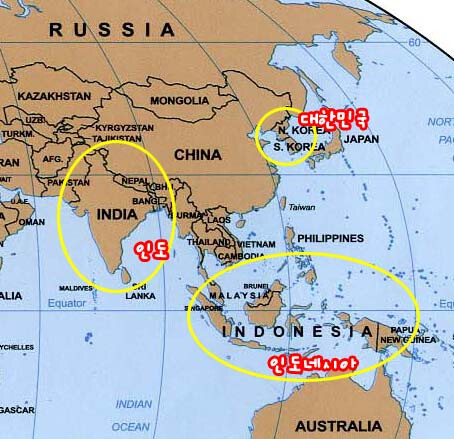
In an era marked by increasing unpredictability in the global trade landscape, largely stemming from unilateral tariff measures reminiscent of the Trump administration, major South Korean conglomerates are strategically pivoting towards the high-growth markets of India and Indonesia. According to industry sources, leading groups such as Lotte, Hyundai Motor Group, and LG are actively pursuing expanded local investments and strengthened business collaborations as a proactive measure to navigate the uncertainties of the international economic climate.
Shin Dong-bin, Chairman of Lotte Group, recently spearheaded a delegation from the Korea Economic Associations (KEA, formerly FKI) to Jakarta, Indonesia, where he engaged in in-depth discussions on economic cooperation with Indonesian President Prabowo Subianto. During the meeting, Chairman Shin conveyed the keen interest of the South Korean business community in collaborating with Indonesian enterprises across various sectors crucial to President Prabowo's development agenda, including downstream industries (raw material processing), renewable energy, infrastructure development, and the digital economy.
The KEA delegation highlighted that South Korean companies have already invested a substantial 270 trillion Rupiah (approximately USD 23 billion) in Indonesia and are actively exploring further investments in high-value-added sectors such as advanced manufacturing and mineral resource development. Notably, Lotte Shopping aims to expand its presence in the Indonesian retail market, while Hyundai Motor Group is accelerating its efforts to establish a local electric vehicle ecosystem. Furthermore, Hanwha General Insurance is eyeing entry into the Indonesian financial market, KCC Glass is considering investments in the glass industry, and diverse companies spanning pharmaceuticals (Chong Kun Dang), construction equipment (HD Hyundai XiteSolution), food (SPC), and cloud services (Megazone Cloud) are exploring market entry and investment expansion in Indonesia.
Prior to his meeting with the President, Chairman Shin underscored Indonesia's strategic importance during a roundtable with the Indonesian Employers' Association (Apindo). He emphasized that "Indonesia, as ASEAN's largest economy, is a crucial partner for South Korean companies," adding that "Korean firms can serve as strategic partners in Indonesia's transition from a resource-based economy to one that generates high added value."
The economic delegation also voiced significant concerns regarding the recent imposition of high tariffs, reaching up to 32%, on Indonesian imports, a move perceived as being in line with the previous administration's emphasis on reciprocal trade principles. The delegation earnestly requested the Indonesian government's proactive diplomatic efforts and support to mitigate the direct impact of these tariffs on South Korean companies operating within Indonesia.
Simultaneously, India is emerging as an increasingly attractive growth engine for South Korean businesses. Boasting the world's largest population of approximately 1.46 billion and the fifth-largest Gross Domestic Product (GDP), India is recognized for its immense consumption potential. A significant demographic advantage lies in its youthful population, with around 600 million individuals under the age of 25, poised to become a powerful consumer base over the next two decades. India's consistent annual economic growth rate of 6-7% further amplifies its allure, leading conglomerates like LG to view India as a "land of opportunity" and actively pursue market penetration strategies.
Koo Kwang-mo, Chairman of LG Group, personally visited India in February to review local business strategies and articulated the group's ambition to achieve a "second leap" by leveraging the Indian market. During his visit, Chairman Koo stressed the critical importance of "securing differentiated competitiveness that overwhelms rivals in the Indian market in the coming years." He added, "Based on the deep understanding of customers and the firm market position we have built, let us embark on a bold challenge for the next 30 years to leap forward as a sustainable No. 1 company." He also encouraged employees to build upon their accumulated customer insights and strong market presence to drive future growth.
LG Electronics is actively expanding its production bases in India to cater to the growing market. In addition to its existing plants in Noida and Pune, the company is proceeding with the construction of its third Indian factory in Sri City, Andhra Pradesh, dedicated to manufacturing premium home appliances. Furthermore, since December of last year, LG Electronics India has been pursuing an initial public offering (IPO) to secure further growth momentum within the local market.
Chung Euisun, Chairman of Hyundai Motor Group, also underscored the strategic importance of the Indian market during a meeting with Indian Prime Minister Narendra Modi in October of the previous year, where they discussed cooperation across the mobility sector. Hyundai Motor Group already operates two Hyundai plants in Chennai and a Kia plant in Anantapur, and is expanding its production capacity with the construction of a third Hyundai plant in the Pune region.
Beyond the automotive sector, POSCO Group operates local subsidiaries such as POSCO Maharashtra, POSCO India PC, and POSCO IPPC. The company is also collaborating with JSW Steel, India's largest steelmaker, to establish a 5-million-tonne integrated steel plant in Odisha, demonstrating a proactive approach to the Indian market.
An industry insider commented, "Amidst the heightened uncertainty in the global trade environment triggered by the previous administration's push for protectionist trade policies, major South Korean companies are strategically targeting high-growth emerging markets like India and Indonesia as new frontiers of opportunity. By actively pursuing market entry and expanding investments, these companies aim to overcome the current challenges and secure new engines for growth." The success of these strategic initiatives in navigating the volatile global economic landscape remains a key point of observation for the business community.
[Copyright (c) Global Economic Times. All Rights Reserved.]



























